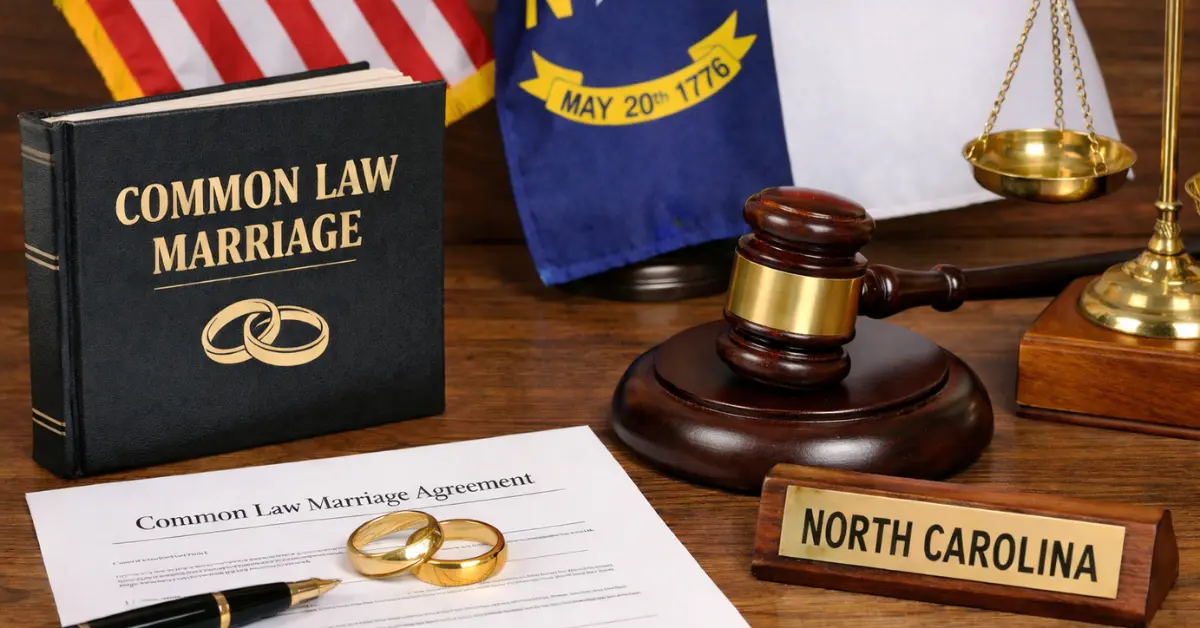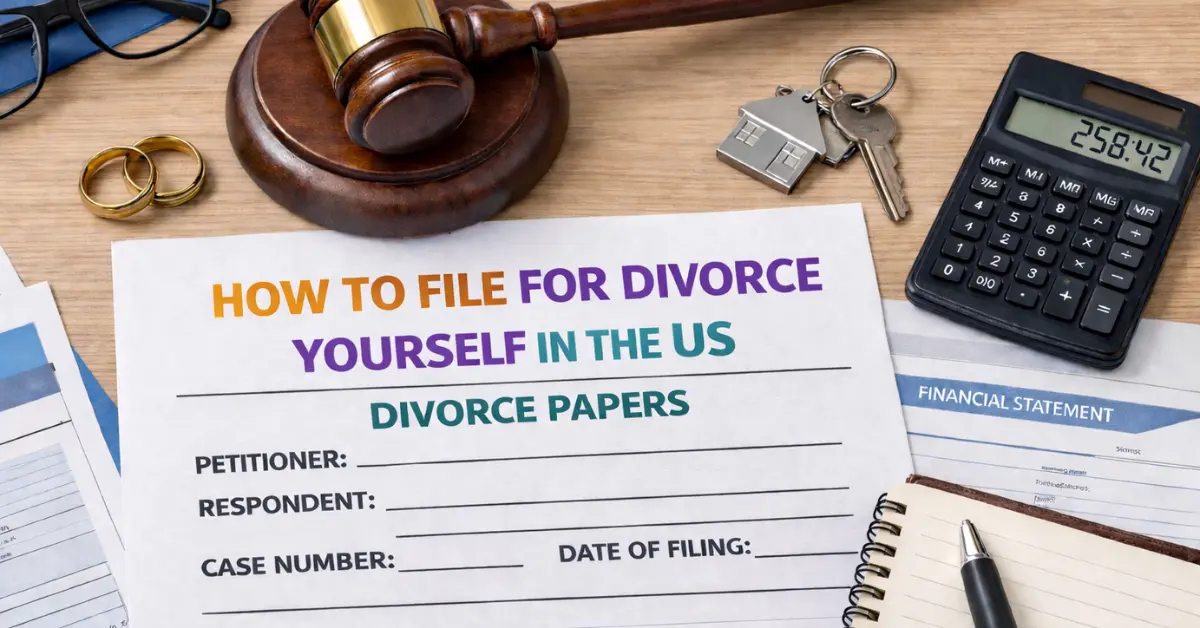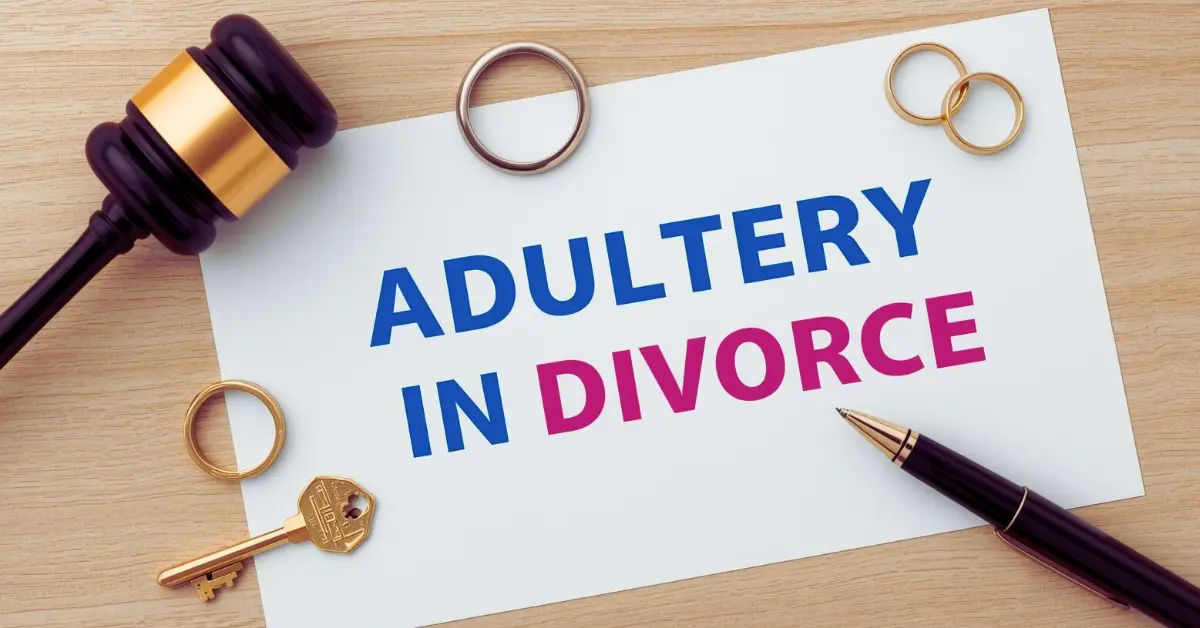In North Carolina, the concept of common law marriage often raises questions, especially since the state doesn’t recognize it for couples residing within its jurisdiction. As top North Carolina family law attorney Charles R. Ullman notes, “Marriage is not just an emotional bond but a legal contract,” emphasizing the importance of understanding your legal standing.
Alongside experts like Heidi C. Bloom and Charles W. Clanton, who also specialize in North Carolina marriage laws and cohabitation rights, this article will guide you through the latest 2026 updates.
We’ll cover how North Carolina’s family law does not recognize common law marriage formed within the state, but may acknowledge such unions if they were legally established elsewhere. We’ll also discuss alternative legal options like cohabitation agreements to help protect your rights as a couple.
Whether you’re looking into marriage license requirements, domestic partnership laws, or inheritance rights for unmarried couples, this article will serve as your comprehensive guide. With insights from leading attorneys and the latest legal updates, you’ll have a clear path to understanding your legal standing in North Carolina.
What is Common Law Marriage?
Common law marriage refers to a union between two individuals who consider themselves married and meet certain state-specific requirements but have not undergone a formal ceremony or obtained a marriage license. Key features that distinguish common law marriage from traditional marriage include:
- Lack of Formal Ceremony
Couples do not participate in a wedding ceremony.
- No Marriage License Requirement
Partners are not required to apply for a marriage license.
- State-Defined Cohabitation Periods
Some states mandate a minimum cohabitation period to qualify.
Common law marriage is recognized in several states, each with unique requirements. However, North Carolina law explicitly does not support or validate common law marriages formed within the state.
This means that even couples who have lived together for decades will not be considered legally married without a formalized marriage process.
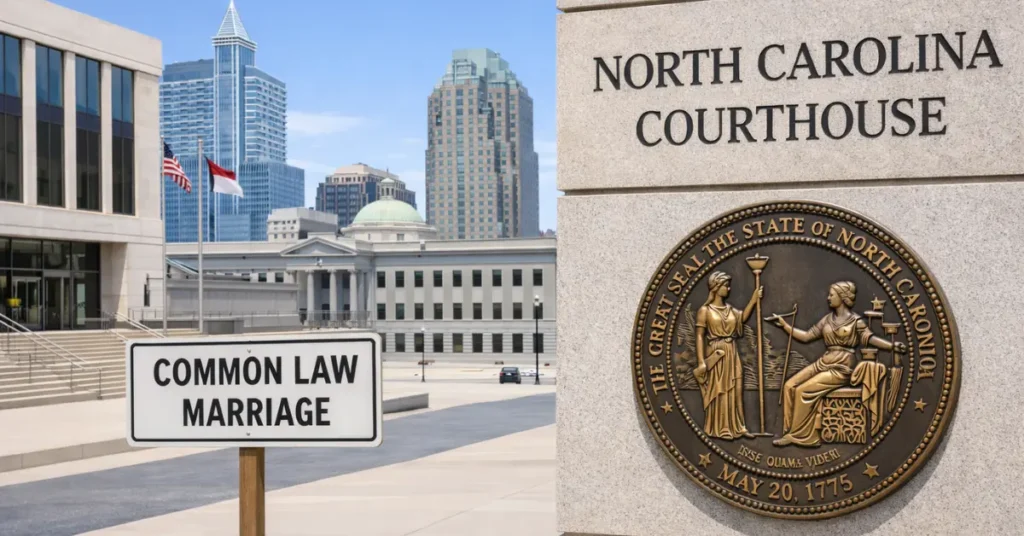
Does North Carolina Recognize Common Law Marriage?
North Carolina’s legal position on common law marriage is straightforward: it does not recognize common law marriages, regardless of how long a couple has cohabited.
While North Carolina previously recognized informal marriages, legal reforms in the 20th century eliminated this practice. Today, couples must obtain a marriage license and participate in a formal ceremony to be considered legally married within the state.
Historical Perspective
Historically, North Carolina followed common law marriage principles, but state statutes have evolved, and the practice has been abolished. “When did the state of North Carolina stop recognizing marriages through the common law system?” is a question that many locals have.
Current statutes do not recognize common law marriage, which suggests that it was abolished over several decades. However, not all of the documents that are currently available provide an exact date.
Recognition of Out-of-State Common Law Marriages
A unique exception to North Carolina’s stance exists regarding common law marriages legally established in other states. If a couple was considered legally married under the common law marriage statutes of another state, North Carolina law may recognize this marriage when they relocate.
The couple would need to provide documentation proving they met the originating state’s legal requirements for common law marriage.
Example Scenarios:
- A couple residing in Colorado (a state that recognizes common law marriage) establishes their relationship legally there without a formal ceremony or license. If they later move to North Carolina, the North Carolina court system may validate their marriage, provided they supply appropriate proof.
- Legal Documentation: Couples should maintain records that demonstrate their marriage was legally recognized under another state’s laws. This might include joint tax returns, shared leases, or affidavits from witnesses who can attest to the relationship.
Implications for Couples in North Carolina
For cohabiting couples in North Carolina, the lack of common law marriage recognition impacts various aspects of life, from property ownership to inheritance rights. Some key implications include:
- Property Rights
Without common law marriage, property acquired by one partner during the relationship does not automatically transfer to the other upon death. Cohabiting couples may want to consider cohabitation agreements or trusts to protect property rights.
- Inheritance
Since unmarried partners are not automatically entitled to inherit a partner’s estate, creating wills is essential. Without a will, the surviving partner may not receive any portion of the deceased partner’s estate.
- Child Custody
Unmarried partners have no presumed parental rights. Establishing custody and visitation rights for children born to unmarried parents requires a separate legal process.
- Financial Protections
Unmarried partners who want to ensure mutual financial support should consider drafting legal agreements that clarify financial obligations, similar to those in marriage.
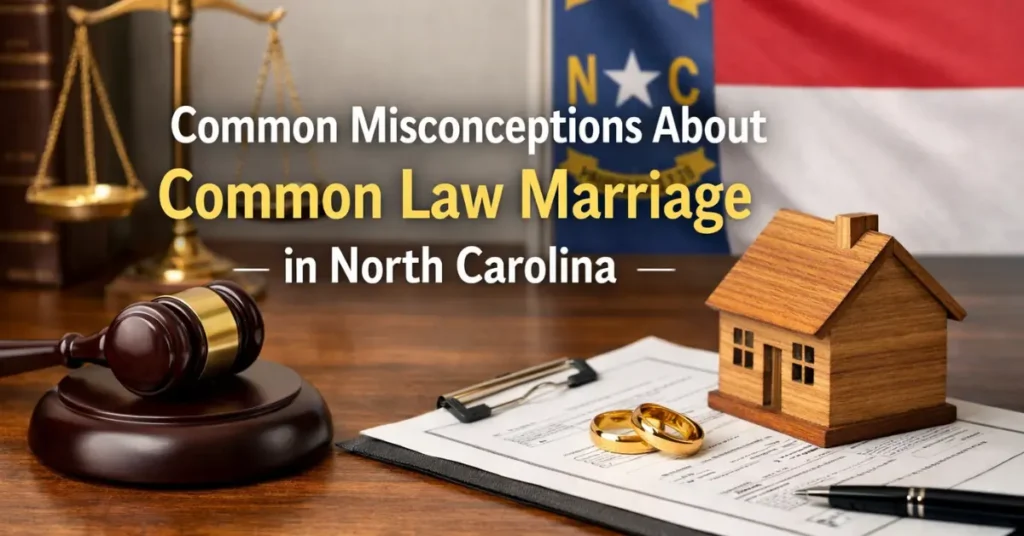
Common Misconceptions About Common Law Marriage in North Carolina
Despite the state’s clear stance, several myths persist about common law marriage in North Carolina:
- Myth: “Living together for seven years makes a couple legally married.”
- Fact: No length of cohabitation can create a legal marriage in North Carolina.
- Myth: “Marriage benefits from having children.”
- Fact: Parental rights are separate from marital status. Children born to cohabiting parents do not alter the parents’ legal relationship status.
- Myth: “If we disclose our marital status, people think we are married.”
- Fact: While some states may recognize public declarations in a common law marriage, this is not the case in North Carolina.
Steps for Couples Seeking Legal Recognition
For couples desiring legal recognition similar to marriage, North Carolina offers clear steps:
- Marriage Registration
Couples who want their relationship legally recognized must obtain a marriage license from a county clerk and participate in a recognized ceremony. The marriage license application includes basic personal details, and both parties must be at least 18 years old.
- Legal Documentation
Couples who choose not to marry but wish to secure financial or parental rights should consult with a family law attorney about creating a cohabitation agreement, property rights agreement, or healthcare proxy.
- Seeking Legal Advice
Consulting a legal professional can help couples understand their rights and draft agreements tailored to their specific situation. This can protect rights related to property division, child custody, and inheritance.
Conclusion
Understanding the nuances of North Carolina’s stance on common law marriage is crucial for cohabiting couples. North Carolina law does not recognize common law marriage within its jurisdiction, though it may recognize such unions established in other states.
This impacts areas such as inheritance, property rights, and child custody for couples in long-term, unmarried relationships.
For residents in North Carolina who wish to enjoy the rights typically associated with marriage, formal legal steps—such as obtaining a marriage license or creating cohabitation agreements—are essential.
Whether through marriage registration or other legal protections, understanding the state’s approach helps couples make informed decisions and secure their rights.

